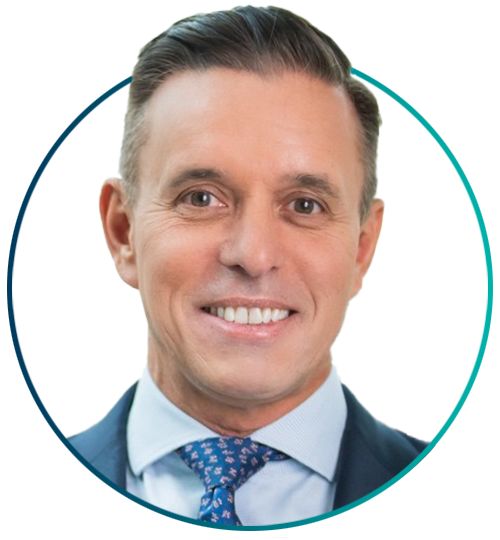Demand for professional escrow services continues to escalate, fueled by the recovery in private markets and stronger M&A activity. Other drivers include increased transaction complexity, stricter regulatory compliance, and market volatility. The need for secure and transparent processes has grown and the rise of alternative investments and the globalization of capital markets further drive this demand, as firms try to navigate diverse legal and regulatory environments.
Demand for professional escrow services continues to escalate, fuelled by the recovery in private markets, in transactions, and in stronger mergers and acquisitions (M&A) activity.
Escrow services are often underappreciated despite their vital role as a risk mitigation structure. Utilizing an escrow arrangement is often recommended by counsel as a prudent business practice that can enhance transaction security. Although often seen as a standard offering, the escrow market has experienced significant growth and evolution in recent years, reinforcing its critical role at the heart of the global financial services landscape.
Without escrow arrangements, transactions might be even more complex, significantly harder to execute, and more expensive to resolve.
CSC has been a major provider of escrow services for decades and has witnessed the market continue to evolve and how the needs of stakeholders have changed. As numerous tailwinds drive the development and sophistication of the escrow market, here are the key trends driving the growth of the global escrow market:
- The renaissance in M&A activity and the ever-greater complexity which comes from cross-border transactions across multiple jurisdictions and regulatory environments.
- The growth of private markets, driven by private equity firms taking businesses private, is further fueling M&A activity. With ample capital, these firms acquire companies to streamline operations, unlock value, and reposition them for growth or future exits, accelerating deal-making across industries.
- Increased activity in sectors such as project finance. Europe, for instance, is benefiting from more bullish sentiment in large-scale renewable energy as well as infrastructure developments, with regulation such as ELTIF 2.0 viewed as a strong tailwind.
- The increase in complex, often large-scale litigation cases and similar legal actions, requiring funds to be held in neutral accounts, often over many years.
The primary driver of escrow demand and growth in Europe, North America, and Asia-Pacific markets will remain M&A and the fundamental need for funds to be put aside in secure accounts managed by a neutral third party.
One of the emerging sub-trends in M&A is focused on acquisition financing, with a consistent demand for safeguarding capital raising proceeds. This ensures that funds are allocated for their intended purposes. Here, CSC is increasingly acting as an intermediary between investors, the placement agent, and the issuer to make sure investor monies are safeguarded until the acquisition closes.
The growth of paying agent services
For CSC, another major area of growth has been paying agent services. Leveraging our escrow solutions and utilizing our technical capabilities, we have seen strong demand for managing post-closing payments to a large number of sellers and beneficiaries located in multiple jurisdictions, usually over short time periods.
Although disbursing large amounts of funds in multiple currencies over a short period of time may be too complex and challenging for many service providers, CSC has developed the functionalities to deliver these sorts of payment services seamlessly.
Shifting market of escrow providers
Indeed, despite M&A activity remaining robust and activity in areas such as real estate and other private markets recovering, the increased complexity of many transactions has resulted in a shifting market of escrow providers.
Due to factors such as more cross border deals and the input of multiple investors and other stakeholders, traditional service suppliers of escrow accounts such as lawyers and banks have been retrenching from the market. Greater operational risks and challenges, such as meeting enhanced regulation and compliance requirements including KYC and transaction monitoring, have combined to make escrow services often too complex for some providers to manage.
However, as providers have exited, specialist licensed escrow firms such as CSC have grown market share and clients.
The role of technology and greater functionalities
An additional catalyst for the use of specialists has been technology. Technological excellence, in the form of a highly efficient, seamless, end-to-end platform, has significantly improved how escrow solutions can be utilized. It has become a major differentiator, with clients gravitating towards firms with the most high-tech solutions.
For instance, when a business is sold, it’s not uncommon to deal with hundreds of beneficiaries, especially as employee participation schemes have become more prevalent. It’s important to clarify that, in the U.S., employee compensation payments are often remitted through a payroll provider, due to the complexities of tax withholding and related reporting requirements involved.
As such, funds need to be delivered to all parties at the same time, irrespective of jurisdiction, and meet all compliance requirements. The role of technology in meeting this need is critical.
Litigation and settlement escrows
Outside of M&A activity, corporate litigation settlements have been on the rise which is driving the need for independent escrow solutions to safeguard contested funds and liabilities.
CSC has experienced heightened business activity and growth in this area, particularly in U.S. litigation and remediation structures. Remediation affects companies who need to set aside funds, such as for environmental clean-ups or similar regulatory reasons, and has become a major consideration for many businesses.
Why CSC for escrow services?
In today’s complex financial landscape, escrow services have become a versatile tool for managing risk and ensuring compliance across various financial sectors. In dealing with our clients and other stakeholders, CSC has seen how escrow has developed to become a risk mitigation tool for the protection of all parties.
For CSC, our client first service approach provides our clients with a dedicated single point of contact to streamline the onboarding and ongoing administration of the transaction. We can run the same team throughout a transaction from end to end, irrespective of location.
At CSC, we understand the importance of trust, speed, and flexibility in corporate transactions. With a legacy of experience and a reputation for agility, CSC is the partner of choice for dealmakers looking for reliable escrow services. Our nimbleness allows us to tailor escrow solutions to the specific needs of your transaction, ensuring that your funds are secure and readily accessible when you need them. Key areas of differentiation are:
- Timing: Timing is crucial for our clients, and as a business we are fully aligned to meet our clients’ deadlines.
- Costs: Escrow/Paying Agent services provided by CSC are cost efficient.
- Regulation: In Europe and the U.K., CSC is a regulated and licensed payment service provider.
- Experience: With more than 125 years of remarkable history, CSC is a testament to enduring excellence in escrow and related agency services. This heritage underscores our unwavering commitment, unparalleled experience, and steadfast client satisfaction, positioning us as the ultimate partner specializing in bespoke transactions and facilitating complex M&A deals.
Whether you are navigating a complex M&A transaction or need a simple and effective solution for risk mitigation, CSC’s escrow services provide the support and expertise you can trust.
To find out more, please download the Escrow Best Practice Guide.
This document is provided by CSC for information purposes only and does not constitute an offer, invitation or inducement to contract. The information herein does not constitute legal, tax, regulatory, accounting or other professional advice and therefore one should seek appropriate professional advice before considering a transaction as described in this document. No liability is accepted whatsoever for any direct or consequential loss arising from the use of this document.


